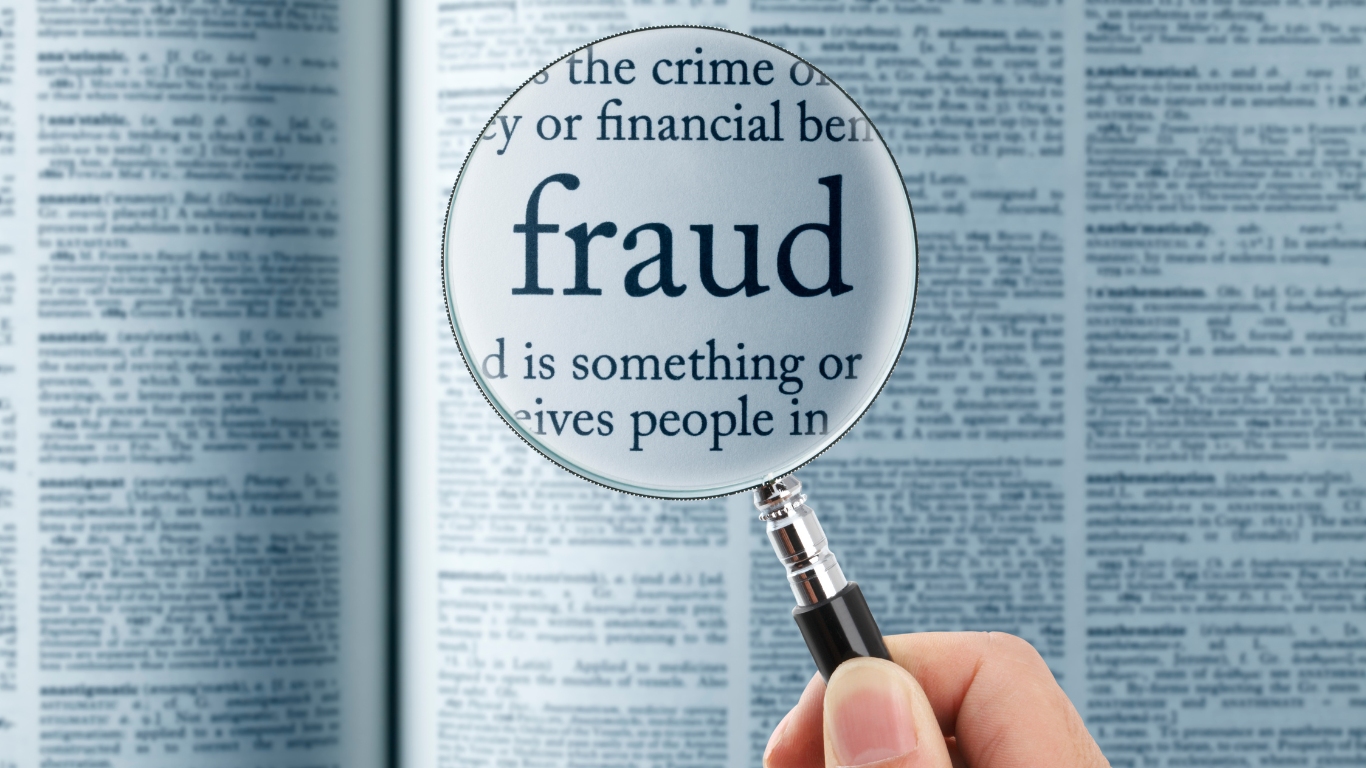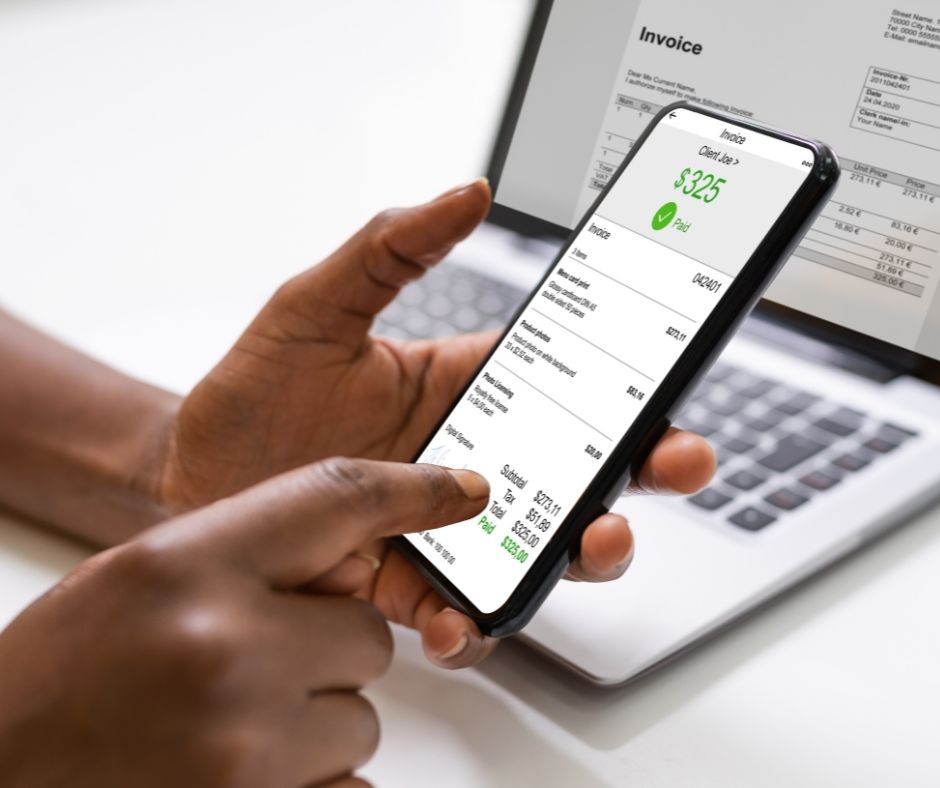Quick overview of Chapter 11 Sub Chapter V for Small Businesses
/in Uncategorized /by reva1Chapter 11 bankruptcy is commonly known as a “reorganization” bankruptcy. It’s a tool that any individual that meets the requirements, or business, no matter what type of organization it is, can use if they are having trouble meeting their debt obligations. While individuals can use Chapter 11 bankruptcy, it’s typically used by corporate entities that […]
Impact of the CARES Act Mortgage Forbearance Rules and Loan Modifications
/in Uncategorized /by reva1The CARES Act was passed in March 2020 not long after the COVID-19 pandemic exploded in the United States. It’s a $2.2 trillion economic stimulus package that Congress passed and then-President Donald Trump signed to provide economic relief to people all around the country who were struggling financially. There were many provisions in the CARES […]
Update on Student Loan Forgiveness
/in Uncategorized /by reva1Student loan forgiveness has been a highly-debated topic for the last few years, as the federal government under both former President Donald Trump and current President Joe Biden has initiated various programs to delay repayments or forgive outstanding debt altogether. Since the onset of the COVID-19 pandemic four years ago, there have been many twists […]
What is the Corporate Transparency Act?
/in Uncategorized /by reva1Enacted back in 2021, the Corporate Transparency Act, or CTA, was passed with the aim of enhancing transparency in various ownership and entity structures to combat illicit activities such as tax fraud and money laundering. As a result of the CTA, more information will be captured about how specific entities that operate within or access […]
Priority of Claims in Bankruptcy
/in Uncategorized /by reva1Embarking on the intricate landscape of bankruptcy involves unraveling the complex web of claims and their prioritization. In this comprehensive guide, we’ll explore the nuances of the priority of claims in bankruptcy proceedings, shedding light on how creditors are categorized and paid. From secured debts to unsecured priority claims, join us on this journey through […]
Bankruptcy and Adversary Proceedings
/in Uncategorized /by reva1In the realm of bankruptcy, adversary proceedings stand as crucial legal actions that can significantly influence the course of a bankruptcy case. Babi Legal offers insights into the intricacies of these proceedings, unraveling their importance, procedural aspects, and the broader impact they have on federal rules of bankruptcy and litigation. Whether you’re a debtor seeking […]
Preferential Transfers In Bankruptcy
/in Uncategorized /by reva1Navigating the intricate terrain of bankruptcy, the concept of preferential transfers takes center stage. In the financial intricacies of insolvency, understanding what constitutes a preferential transfer and its implications is paramount. What Is a Preferential Transfer? A preferential transfer in bankruptcy involves a payment made to a creditor shortly before filing for bankruptcy, potentially favoring […]
Cramdown in Chapter 13 Bankruptcy
/in Uncategorized /by reva1In navigating the landscape of Chapter 13 bankruptcy, understanding the intricacies of cramdowns is essential. This aspect significantly influences the treatment of secured and unsecured debts, shaping the debtor’s reorganization plan. Just as effective communication is vital in bankruptcy proceedings, comprehending cramdown provisions is crucial for informed decision-making. This article will guide you through the […]
Means Test in Chapter 7 Bankruptcy
/in Uncategorized /by reva1Embarking on a journey through Chapter 7 bankruptcy? Get ready to navigate the crucial means test – a key determinant for debt relief eligibility. We unravel the complexities surrounding median income, disposable income, and monthly expenses, as well as delve into the nuances of the means test, exploring the ins and outs of its calculation, […]
What Happens to the Automatic Stay if My Bankruptcy Case Is Dismissed?
/in Uncategorized /by reva1How does the Automatic Stay function? If the consumer is filing his or her’s first bankruptcy case, then they will be entitled to the benefits of the automatic stay. The automatic stay is a legal injunction designed to provide immediate and extensive protection to debtors, suspending collection efforts, foreclosure actions, and other proceedings outlined in […]
What is Chapter 20 bankruptcy?
/in Uncategorized /by reva1Chapter 20 bankruptcy is a strategy that combines elements of both Chapter 7 and Chapter 13 bankruptcy plans. The process involves initiating a Chapter 7 bankruptcy first, which helps reduce unsecured debts and overall debt amounts. This, in turn, may bring the debtor within the acceptable range for filing a Chapter 13 bankruptcy. Understanding Chapter […]
Bankruptcy Notices
/in Uncategorized /by reva1When diving into the intricacies of bankruptcy, effective communication is paramount. Filing for bankruptcy impacts your rights and necessitates informing all relevant parties. Notice recipients, often creditors, play a crucial role in receiving official notifications from the court through the Bankruptcy Noticing Center (BNC). The BNC simplifies this complex process, offering free electronic notifications through […]
Rule 2004 Bankruptcy Exam: Unveiling Bankruptcy Truths
/in Uncategorized /by reva1Federal Rule of Bankruptcy Procedure 2004 is a powerful tool for shedding light on crucial details in the intricate world of bankruptcy. Simply put, it’s a provision that allows any interested party to request a court-ordered examination of any involved person or entity. As defined by the rule, this examination required testimony under oath and […]
341 (A) Meeting Of Creditors
/in Uncategorized /by reva1A 341 Meeting of Creditors is a necessary step in the bankruptcy process in the United States. Its primary purpose is to verify the bankruptcy details and ensure all required paperwork in filed bankruptcy is accurate. During this meeting, the person filing for bankruptcy (the debtor) will answer questions under penalty of perjury about the […]
Request A Forbearance On Student Loans
/in Uncategorized /by reva1Student loan forbearance allows borrowers to pause or reduce their monthly payments temporarily. During federal student loan forbearance, interest continues to accrue on the loan, which means the total amount you owe may increase over time. Forbearance is like hitting a pause button on your student loan payments. It’s a short-term fix for up to […]
Involuntary Bankruptcy Definition
/in Uncategorized /by joe babiInvoluntary bankruptcy is a legal avenue for creditors to force a person or business into bankruptcy proceedings when they cannot collect debts. Unlike voluntary bankruptcy, where debtors initiate the process, involuntary bankruptcy occurs when creditors petition the court. Involuntary bankruptcy proceedings can be a powerful tool for creditors seeking to recover debts from reluctant debtors. […]
Car Financing While in Chapter 13 Bankruptcy Filing
/in Uncategorized /by joe babiWhen you file for Chapter 13 bankruptcy, a form of repayment bankruptcy known as a reorganization, your credit score will be negatively impacted, and this information will remain on your credit report for seven years. In a Chapter 13 bankruptcy, you adhere to a court-approved repayment plan that spans three to five years, during which […]
Chapter 7 Dismissal Vs. Discharge
/in Uncategorized /by joe babiWhen initiating bankruptcy proceedings for the first time, it is imperative to grasp the lexicon employed during the procedure. Many individuals often find themselves perplexed by the disparity between “dismissal” and “discharge” within the context of bankruptcy processes. 1. Dismissal Of A Bankruptcy Case Dismissal typically denotes that the court has halted all proceedings within […]
Common Bankruptcy Mistakes
/in Uncategorized /by joe babiLet’s delve deeper into some critical aspects to provide you with a comprehensive understanding of avoiding the most common bankruptcy mistakes. Mistakes To Avoid With Personal Debts Repaying Family Members The law treats family members like any other creditor regarding repaying friends or a family member’s debts. The bankruptcy trustee can make a claim for […]
Bankruptcy Fraud Statute
/in Uncategorized /by joe babiFederal bankruptcy laws are designed to help people who are overwhelmed by debt. If you cannot repay your debts, these laws allow you to start fresh, wiping out most of your debts through the different bankruptcy chapters. However, rules are in place to ensure that the process is fair and that everyone plays by the […]
Bankruptcy Foreign Assets
/in Uncategorized /by joe babiImagine your financial life is where you owe a lot of money to different people or companies, and it takes time to manage. You’ve heard about different bankruptcy chapters, which can help you eliminate most of your debts and give you a fresh start. Suppose you possess a residence, financial account, real estate investment property, […]
No Asset Bankruptcy
/in Uncategorized /by joe babiIn the realm of bankruptcy, a distinct avenue known as “no-asset Chapter 7 bankruptcy” emerges, offering individuals a strategic approach to safeguard their possessions. This term underscores the notion that individuals undergoing bankruptcy possess no assets liable for liquidation by the bankruptcy trustee to settle debts owed to creditors. This article delves into the intricate […]
What Is A Reaffirmation Agreement In A Chapter 7?
/in Uncategorized /by joe babiImagine you’re driving down a road of financial difficulties and decide to take a detour called “Chapter 7 bankruptcy” to help you get your car payment back on track. This detour has a particular signpost called a “reaffirmation agreement.” This agreement is like a contract that gives the debtor and your creditors (the people you […]
Bankruptcy, Mortgages, and Reaffirmation Agreements
/in Uncategorized /by joe babiIf you’re a homeowner and you find yourself in a Chapter 7 bankruptcy situation, the idea of mortgage reaffirmation might arise. Your lender might send a reaffirmation agreement to your bankruptcy lawyer, but the question is: should you sign it? Benefits of Reaffirming Your Mortgage Debt A Reaffirmation Agreement is like a promise […]
Bankruptcy And Cosigners Joint Debts
/in Uncategorized /by joe babiDeclaring bankruptcy erases certain debts, so you don’t have to repay them. However, if someone else, like a cosigner or joint account holder, co-signed or is responsible for the debt with you, they still have to pay it not to be considered in default. Here’s what happens: If you file for Chapter 7 bankruptcy, the […]
Bankruptcy and Business Partnerships
/in Uncategorized /by joe babiBusiness owners often proceed with creating their company, forming partnerships, securing loans, and entering the market without considering potential risks. They tend to believe that merely incorporating the business shields them from liability. Additionally, relying on the assumption that losses are distributed among partners according to the company bylaws, they perceive the risks as proportionate […]
Bankruptcy Fraud Cases
/in Uncategorized /by joe babiBankruptcy is a way for honest people struggling with debt to get relief and a fresh start. It’s meant to help individuals facing challenging situations like losing a job, having big medical bills, divorcing, or dealing with a disability. But sadly, some dishonest people misuse the bankruptcy system. They might have enough money to pay […]
Bankruptcy And Retirement Accounts
/in Uncategorized /by joe babiWhen facing financial difficulties, individuals in distress may view their retirement accounts as a convenient source of funds, using retirement money and hoping it can spare them from resorting to Chapter 7 or Chapter 13 bankruptcy filings to regain control over their debts. Retirement accounts typically enjoy protection in bankruptcy, safeguarding them from being utilized […]
What Happens to My IRS Tax Debt if I File Bankruptcy?
/in Uncategorized /by joe babiBankruptcy And Tax Debt Within the realm of bankruptcy, taxes are generally classified as “nondischargeable priority debt.” It indicates that bankruptcy cannot eliminate tax debts, and the repayment of such obligations is prioritized over the claims of other creditors. Nevertheless, there are situations where taxes can be categorized as “dischargeable debt,” meaning they can be […]
Bankruptcy And Your Credit Score
/in Uncategorized /by joe babiBankruptcy represents a tradeoff. It provides relief by eliminating debt obligations or reducing unmanageable debts, but it also signals to lenders that you pose a credit risk, dropping your credit score. This decline or bad credit can make it challenging to obtain loans, credit cards, and mortgages in the immediate future. Bankruptcy can significantly impact […]
Exploring Debt Consolidation as an Alternative to Bankruptcy
/in Uncategorized /by joe babiConsider various financial alternatives if you face difficulty handling your debts. When comparing debt consolidation and bankruptcy, it is crucial to grasp the disparities between these two methods and their advantages and disadvantages. Debt consolidation entails obtaining a new loan or line of credit to repay your debt under potentially improved terms. On the contrary, […]
Bankruptcy Exemptions: Protecting Your Assets during the Bankruptcy Process
/in Uncategorized /by joe babiPeople filing for bankruptcy must maintain a certain standard of living to function as productive members of society, and thus are entitled to protect various real and personal property under the bankruptcy code. Bankruptcy exemptions protect these essential possessions, preventing the bankruptcy trustee from seizing and selling them to satisfy creditors’ claims. Bankruptcy exemptions allow […]
The Impact of Bankruptcy on Student Loans
/in Uncategorized /by joe babiIt is a common misconception that student loans are immune to bankruptcy discharge, but that is not entirely true. Although challenging, it is possible to discharge federal student loan borrowers’ loans through bankruptcy under certain circumstances. If you can successfully demonstrate undue hardship, then through the successful filing of an adversary proceeding in the bankruptcy […]
Claiming Surplus Funds After A Michigan Foreclosure
/in Uncategorized /by joe babiSometimes when homes are foreclosed upon, there are surplus funds that result from the proceeding sheriff’s sale. This happens if the property ended up selling for more than the borrower owed on the mortgage at the time of the sale. In cases such as these, the question that lingers is who is entitled to those […]
HOA Foreclosure Vs. Bank Foreclosure
/in Uncategorized /by joe babiWhen most homeowners think of foreclosures, they think of the bank being the entity that initiates that process. While that is the most common form of foreclosure — for when homeowners fall behind on their mortgage payments — it’s not the only form. In Michigan and some other states, homeowners’ associations and condominium associations can […]
What To Do If Bank Changed Locks Before A Foreclosure
/in Uncategorized /by joe babiWhen banks initiate the foreclosure process for failure to make payments, they must follow specific requirements as outlined by the state in which the property is located. These requirements are guidelines that tell the bank what it has to do, when it has to do it and what it has to do to complete the […]
What Is Foreclosure Lis Pendens?
/in Uncategorized /by joe babiThe foreclosure process can take a while in most states. In Michigan, mortgage companies can’t even begin the foreclosure process until a borrower is at least 120 days past due on their payments. Even then, a sheriff’s sale can’t be held for at least four weeks after the foreclosure notice is posted on the home’s […]
Foreclosure on Discharged Mortgage
/in Uncategorized /by joe babiWhen individuals are facing economic struggles, they may proceed with filing for bankruptcy protection to get them back on the right foot. If these individuals are homeowners, the process gets a little more complicated. Chapter 7 bankruptcy allows individuals to not include their home and associated mortgage in the bankruptcy proceedings, provided they are current […]
What Is Writ Of Assistance In A Foreclosure?
/in Uncategorized /by joe babiWhen homeowners fail to meet the requirements of their mortgage, lenders will often proceed with a foreclosure to reclaim their property. This is done because the property itself is what’s used as the collateral to secure the loan. Until the borrower pays the loan off, the collateral — the property in this case — remains […]
The Role Of The Allonge In Foreclosure
/in Uncategorized /by joe babiMany people throughout the country obtain a mortgage to finance the purchase price of their home. Unless you have the cash to pay for the home outright — or other means of borrowing money — you will likely go the route of choosing one of the popular mortgage types that lenders make available. No matter […]
What is a Vendor Lien?
/in Uncategorized /by joe babiWhen someone purchases real or personal property, they typically will do so either in cash, on a credit card or as part of a larger loan such as a mortgage. If a secured loan is used to finance the purchase price, then the actual property itself is used as collateral. The most common example of […]
The Difference Between an Execution Sale and a Foreclosure Sale
/in Uncategorized /by joe babiProperties can be repossessed by banks or other creditors under certain clearly-defined circumstances, which vary from state to state. While the processes of repossession and re-sale differ from one type to the next, the general premise for these repossessions being initiated is unpaid debt. Two of the most common forms of re-sale for repossessed properties […]
Michigan State Cannabis License Approval vs. City/Municipality Cannabis License Approval
/in Uncategorized /by joe babiCannabis has become big business in Michigan in a very short period of time. While the Michigan Regulation and Taxation of Marijuana Act was passed in 2018, the first sale of recreational marijuana didn’t take place in the state until December of 2019. In the first full year of recreational marijuana sale in 2020, overall […]
Michigan Rules and Regulations for Cannabis
/in Uncategorized /by joe babiWhile many states in recent years have moved to legalize marijuana for medical or recreation purposes — or both — Michigan was actually the first one in the Midwest to legalize it on a recreational basis. In 2018, the Michigan Regulation and Taxation of Marijuana Act was signed into law, which made it legal for […]
Cannabis-related Real Estate Transactions, buying/selling/leasing
/in Uncategorized /by joe babiCannabis-related businesses can be extremely lucrative, but they also bring with them a lot of challenges that businesses in other industries don’t face. Even though both recreational and medical cannabis is legal in Michigan and many other states, for example, setting up shop is not as easy as it is for other industries. One of […]
Bankruptcy Options for Cannabis Companies
/in Uncategorized /by joe babiAn increasing number of states are moving forward with legalizing cannabis in some fashion. In Michigan, and in many other states, it is legal for most adults over the age of 21 to partake in medical and recreational marijuana. As such, an entire cannabis industry in Michigan has popped up over the last few […]
Can You Smoke Weed in Public in Michigan?
/in Uncategorized /by joe babiMichigan is one of the states in America where it is legal to use marijuana both for medical and recreational purposes. It was actually the first state in the Midwest to legalize marijuana on a recreational basis back in 2018, which allowed adults who are over the age of 21 to use weed for […]
What Happens if TSA Finds Cannabis in Checked Luggage?
/in Uncategorized /by melvin babiMarijuana is more socially acceptable throughout the country. Some states such as Michigan have even legalized the practice of growing, selling and using cannabis on a medical and/or recreational basis. For those who are interested in partaking in marijuana in one way or another, this is really good news. At the same time, […]
TSA Guidelines for Cannabis 2022
/in Uncategorized /by melvin babiMany states throughout the country have legalized cannabis in some form. Some states have legalized it only for approved medical use. Others have legalized it for adult recreational usage as well. Others have done neither, and still consider its usage to be illegal in all forms. These different rules in regard to cannabis usage can […]
How to Get a Michigan Weed/Marijuana Dispensary License
/in Uncategorized /by melvin babiMedical marijuana has been legal in the state of Michigan since back in 2008. Michigan completely changed the landscape for weed possession and consumption in 2018, though, when it became the 10th state in the U.S. to legalize it for recreational use. Despite having 14 years of experience dealing with some form of legal marijuana, […]
Can anyone sell edibles in Michigan?
/in Uncategorized /by melvin babiMichigan is one of the states in America where both medical marijuana and recreational marijuana use is legal. Thanks to a new law passed a few years ago, people who are over the age of 21 can legally purchase a small amount of marijuana for recreational usage. CBD products are also legal and come with […]
Can You Have a Medical Card and Concealed Weapons Permit in Michigan?
/in Uncategorized /by melvin babiMichigan is one of 37 states in the U.S. that allows cannabis products to be used for medical purposes. Michigan now allows recreational cannabis use to an individual who is 21 years or older. It also provides concealed weapons permits to certain gun owners and users. But, can a person in the state of Michigan […]
FHA Advance Loan Modification or COVID-19 ALM
/in Uncategorized /by melvin babiMortgages are huge responsibilities that shouldn’t be taken lightly. In many instances, borrowers agree to 15- or 30- year loan terms. So if you’re ever unhappy with your mortgage, it may feel like you’re stuck and have no choice but to manage and just cope. The COVID-19 Advance Loan Modification is a permanent change in […]
TSA Guidelines for CBD Oil 2022
/in Uncategorized /by melvin babiCannabidiol (CBD) oil is a product used today by many people for many different reasons. For some people who are facing serious and significant medical conditions, CBD oil is quite literally a life saver. Each state in America has different rules and regulations when it comes to who is allowed to possess and use CBD […]
What Are Some Alternatives To Foreclosure?
/in Uncategorized /by melvin babiIf a homeowner falls behind on mortgage payments and cannot catch up, the lender may take back the home. The bank can take the property away from the homeowner if they do not pay back the money they owe. This is called foreclosing the property. A foreclosure is when a lender, especially a mortgage lender, […]
Is CBD Legal in Michigan 2022?
/in Uncategorized /by melvin babiOver the last 15 years, states across the country have begun to address marijuana and products derived from it in different ways. Even the federal government has gotten in on the act, legalizing certain products through the 2018 Farm Bill. Michigan first addressed the topic back in 2008, making medical marijuana legal, as well as […]
Can A HUD Partial Claim Be Forgiven?
/in Uncategorized /by melvin babiThe Federal Housing Administration provides mortgage insurance for single-family houses, multistory dwellings, hospitals, and residential care facilities. The FHA collaborates with authorized lenders in the United States and organizations like the US Department of Housing and Urban Development (HUD) to provide HUD partial claim forgiveness. Homeowners might fall behind on their mortgage payments, and these […]
Can You Remove A Name From A Mortgage?
/in Uncategorized /by melvin babiIf you’re pondering about taking someone’s name off a mortgage, a significant life event is likely unfolding. There are many reasons why you might want to change the name on your mortgage. This could include getting a divorce, splitting up with a partner, or just wanting to give the other person more financial flexibility. But […]
What Does Having A Felony Prevent You From Doing?
/in Uncategorized /by melvin babiIf you are convicted of a felony in Michigan, it will have long-lasting effects on your life. Although a felony conviction might make it hard to get specific jobs and lose some civil rights, remember that this does not have to be the end of your life. There are many ways to overcome the challenges […]
Differences Between Pre-foreclosure And Foreclosure
/in Uncategorized /by melvin babiWhat is the difference between pre-foreclosure and foreclosure? Pre-foreclosure occurs when a homeowner falls behind on mortgage payments and the lender threatens to repossess the home. Foreclosure occurs when the lender sells the home at auction or forecloses through the courts. Both pre-foreclosure and foreclosure can be stressful for homeowners. In both cases, it is […]
What Are FCRA Dismissed Bankruptcies?
/in Uncategorized /by melvin babiBankruptcy is a legal process that helps individuals or businesses eliminate or repay their debts. In some cases, however, bankruptcy may be dismissed. A dismissal can happen for several reasons, such as if the debtor does not follow the rules of the bankruptcy process or if the debtor’s creditors object to the discharge of the […]
Is Alimony Dischargeable in Bankruptcy?
/in Uncategorized /by melvin babiAlimony, also called spousal support, domestic support obligation, or maintenance, is a payment from one ex-spouse to another. The payments are typically made after a divorce or legal separation. Alimony can be ordered by a court or agreed upon by the divorcing parties. The spouse who is paying the bills is called the “supporting spouse” […]
Gambling While in Chapter 7
/in Uncategorized /by melvin babiTechnically, you are allowed to gamble while in Chapter 7 bankruptcy. However, there are a few things that you need to keep in mind if you do choose to gamble while amid your bankruptcy case. First and foremost, any money that you win while gambling will become part of your bankruptcy estate. This means that […]
All You Need To Know About The 90-Day Clawback Period
/in Uncategorized /by melvin babiWhen you file for bankruptcy, the court issues an automatic stay. This means that creditors are no longer allowed to contact you or try to collect debts. The automatic stay is in place for the duration of your bankruptcy case. However, there is one exception to the automatic stay: the 90-day clawback period. It is […]
Should I Tell Creditors I Am Filing Bankruptcy?
/in Uncategorized /by melvin babiThe answer to this question is generally no. When you have a lot of debt (from credit cards, personal loans, medical bills, or a car loan), expect to receive more calls from creditors than you’d like. It isn’t very pleasant to feel like your phone has been taken over and you’d want the calls to […]
What To Do With Credit Cards Before Filing Bankruptcy Chapter 7
/in Uncategorized /by melvin babiOne of the good things about filing for Chapter 7 bankruptcy is that it eliminates your debts, which might include credit card charges. If you’re considering filing for bankruptcy, it’s important to understand what will happen to your credit cards. It’s time to stop using your credit cards once you’ve decided to file bankruptcy. The […]
When Should A Small Business File For Bankruptcy?
/in Uncategorized /by melvin babiThere are many factors to consider when deciding whether or not to file for bankruptcy as a small business. Some common reasons why businesses seek to file bankruptcy include: To discharge debt that the business is unable to pay To reorganize the business and its finances To sell off assets to raise money to pay […]
How To Qualify For Chapter 13 Bankruptcy
/in Uncategorized /by melvin babiA Chapter 13 bankruptcy is a type of bankruptcy that is used by individuals who have regular earnings. It allows people with consistent incomes to develop a debt repayment strategy. What are the main characteristics of Chapter 13 bankruptcy? In Chapter 13 bankruptcy, debtors may propose a payment plan that would require them to make […]
Five Questions To Ask A Bankruptcy Attorney
/in Uncategorized /by melvin babiIf you are thinking about filing for bankruptcy in Michigan, you need to know a few things. Bankruptcy is a process that has certain requirements. It can also determine different situations in people’s lives. Each person’s financial situation is unique, and the specifics might vary significantly. Discharging or reorganizing your debts can provide relief, but […]
Will Filing Bankruptcy Stop Wage Garnishment?
/in Uncategorized /by melvin babiFiling bankruptcy stops most wage garnishment and also prevents creditors from obtaining new garnishment orders against you. When you file bankruptcy, an “automatic stay” is issued automatically. Wage garnishment enables creditors to take money from your paychecks when you stop making payments to them. Every state, including Michigan, has a prescribed legal method for seizing […]
After Bankruptcy, Are Mortgage Loans Possible?
/in Uncategorized /by melvin babiIt is feasible to get a home loan after bankruptcy. However, the length of time you must wait after your bankruptcy is dismissed or discharged depends on the type of bankruptcy and the loan you took. FICO says that bankruptcy can damage your credit scores by anywhere from 130 to 240 points, depending on the […]
Can Utility Bills Be Included In Chapter 7 Bankruptcy?
/in Uncategorized /by melvin babiEven if you have fallen behind on your utility bills, filing for Chapter 7 bankruptcy might be able to keep your utility services connected, including electricity, gas, water, or phone. Utility debts are typically discharged or wiped out in bankruptcy. If you owe back payments on utilities and file for bankruptcy, the utility provider is […]
Can You Refinance After Covid Forbearance?
/in Uncategorized /by melvin babiWhat Is Covid Mortgage Forbearance and How Does It Work? A loan servicer or lender may delay, suspend, or lower your mortgage payments via a mortgage forbearance. During this period, the bank also agrees not to start foreclosure procedures. Homeowners with a federally backed mortgage who are experiencing Covid 19 pandemic-related problems could apply for […]
What Are The Loan Modification Fees You Need To Know About?
/in Uncategorized /by melvin babiA loan modification differs from refinancing your mortgage in that it entails changing the terms of your existing loan rather than replacing it with a new one. Refinancing, on the other hand, is when you replace your loan with a new loan. To avoid foreclosure, many people may seek to change their mortgage payment or […]
Cash-out Refinance After Covid Forbearance
/in Uncategorized /by melvin babiMany measures have been implemented in reaction to COVID-19 to assist those who are having difficulties. The option to seek forbearance, or a delay in mortgage payments, was made available to anyone who had been affected by the virus or its repercussions on the economy. COVID-19 forbearances, which Congress stated were meant to be non-credit […]
Tips for Getting your Loan Modification Approved in Michigan
/in Uncategorized /by melvin babiIt’s possible that your mortgage payment will be lower or your house may be foreclosed. If you’re having trouble making mortgage payments, it’s worth exploring the possibility of a loan modification. A home loan modification might involve extending the terms of your loan, lowering your interest rate, or switching from an adjustable-rate mortgage to a […]
Does Covid-19 Hardship Forbearance Affect Credit?
/in Uncategorized /by melvin babiThe coronavirus/Covid-19 epidemic has caused significant economic uncertainty, putting millions of Americans in financial distress and forcing them to cope with bills they were unprepared for, such as rent and insurance premiums. A lot of people have lost their jobs, been furloughed, or had their pay cut because of Covid-19. For these people, lenders and […]
Key Terms to Understand about Loan Modifications
/in Uncategorized /by melvin babiBuying a house is an exciting event, but it may also be one of the most difficult if you don’t know anything about mortgages. Buying a home can be a very complicated process. There is a lot of paperwork that needs to be completed. It is important to know what to expect, especially if you […]
Five Questions to Ask Yourself Before Filing for Bankruptcy
/in Uncategorized /by melvin babiFiling for bankruptcy is not something to be done lightly, and it is far from the only solution for every problem. Filing for bankruptcy is not the best option for everyone, and it’s not a quick fix. However, if you are having trouble making ends meet due to an overwhelming number of creditors as well […]
Questions to Ask a Real Estate Attorney
/in Uncategorized /by melvin babiFinding a good real estate attorney can assist you and your business in all stages of a real estate deal when you’re selling, buying, or just renting out any property. The appropriate real estate lawyer will be knowledgeable in your local real estate market and available to oversee the legal particulars of your real estate […]
What does the law say about not paying your debt in Michigan?
/in Uncategorized /by joe babiWhen it comes to their finances, Michigan residents have significant underlying debt problems. On the surface, issue areas are rarely apparent since Michigan keeps debt levels lower than the national average Michigan consumers and debt One of the key reasons is that many Michigan consumers use bankruptcy to discharge their debts, lowering the state’s average […]
Can an attorney stop foreclosure in Michigan?
/in Uncategorized /by joe babiWhen you’re facing a foreclosure, it may be difficult to know how to proceed and what options are available. Foreclosure is the process in which a lender forecloses on a property after someone fails to pay their loan. How does foreclosure begin in Michigan? In Michigan, most foreclosures are done without the need for court […]
What You Need to Know About Credit Counseling in Michigan
/in Uncategorized /by joe babiMany people, depending on their financial situation, believe that credit counseling in Michigan will harm their credit report, but this isn’t the case. This won’t show up on your credit report if you go to a Michigan credit counselor to get debt advice or assistance to manage your money. Michigan credit counselors will guide you […]
What’s The Timeline I Can Expect When I File for Bankruptcy?
/in Uncategorized /by joe babiA standard Chapter 7 bankruptcy timeline Step #1 – Free consultation At the first consultation, a legal representative from the Babi Legal Group will work with you to pick the finest option for assisting you towards the best financial management. If bankruptcy is not a good fit for you, then a settlement may be an […]
Three Bankruptcy Alternatives: How to Avoid Filing for Bankruptcy in Michigan
/in Uncategorized /by joe babiIf your financial circumstances this year have been adverse to you and your family, here is an article that can guide you through several alternatives to bankruptcy. If you want to discuss your case details contact info for Babi Legal Group is on this website. With our contact information choose attorneys that are on your […]
What does the bankruptcy trustee investigate?
/in Uncategorized /by joe babiThere are a lot of reasons why people file for bankruptcy, but they all have one thing in common: they want to get rid of their debt. To do that, the trustee will need to investigate your life and finances from top to bottom. The goal is not just to figure out if you’re eligible […]
How to file bankruptcy yourself in Michigan (and why you shouldn’t do it yourself)
/in Uncategorized /by joe babiGet your finances back on track Rebuild credit and get a fresh start Rest easy knowing that you’re doing what’s best for your family If you are in bankruptcy and need to know how to file bankruptcy yourself in Michigan, we can help. We will tell you why filing bankruptcy yourself is a bad idea […]
Loan modifications and foreclosures
/in Uncategorized /by Israel LunaEveryone experiences hard times now and again. Sometimes, tough economic times can result in scary outcomes, such as the threat of your home being taken away. If you’ve fallen behind on your mortgage payments, your mortgage company can initiate a foreclosure to take back their asset. If you don’t act quickly to prevent foreclosure with […]
4 Important Questions About Filing for Medical Bankruptcy for Medical Bills
/in Chapter 7 /by melvin babiFiling for Chapter 7 Bankruptcy? The Bankruptcy Requirements to Know
/in Chapter 7 /by melvin babiChapter 7 Bankruptcy, also known as liquidation bankruptcy, is the most common bankruptcy case—63 percent of over 800,000 bankruptcy cases in 2016 were Chapter 7. It discharges most of the unsecured debts that include medical bills, personal loans, and credit card debts. Being the quickest, most common, and the simplest type of bankruptcy to file […]
Free Consultation
Fill out the form below to request a FREE Consultation. We will get back to you shortly.









































































































